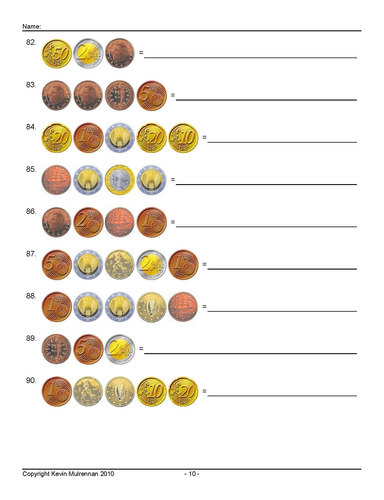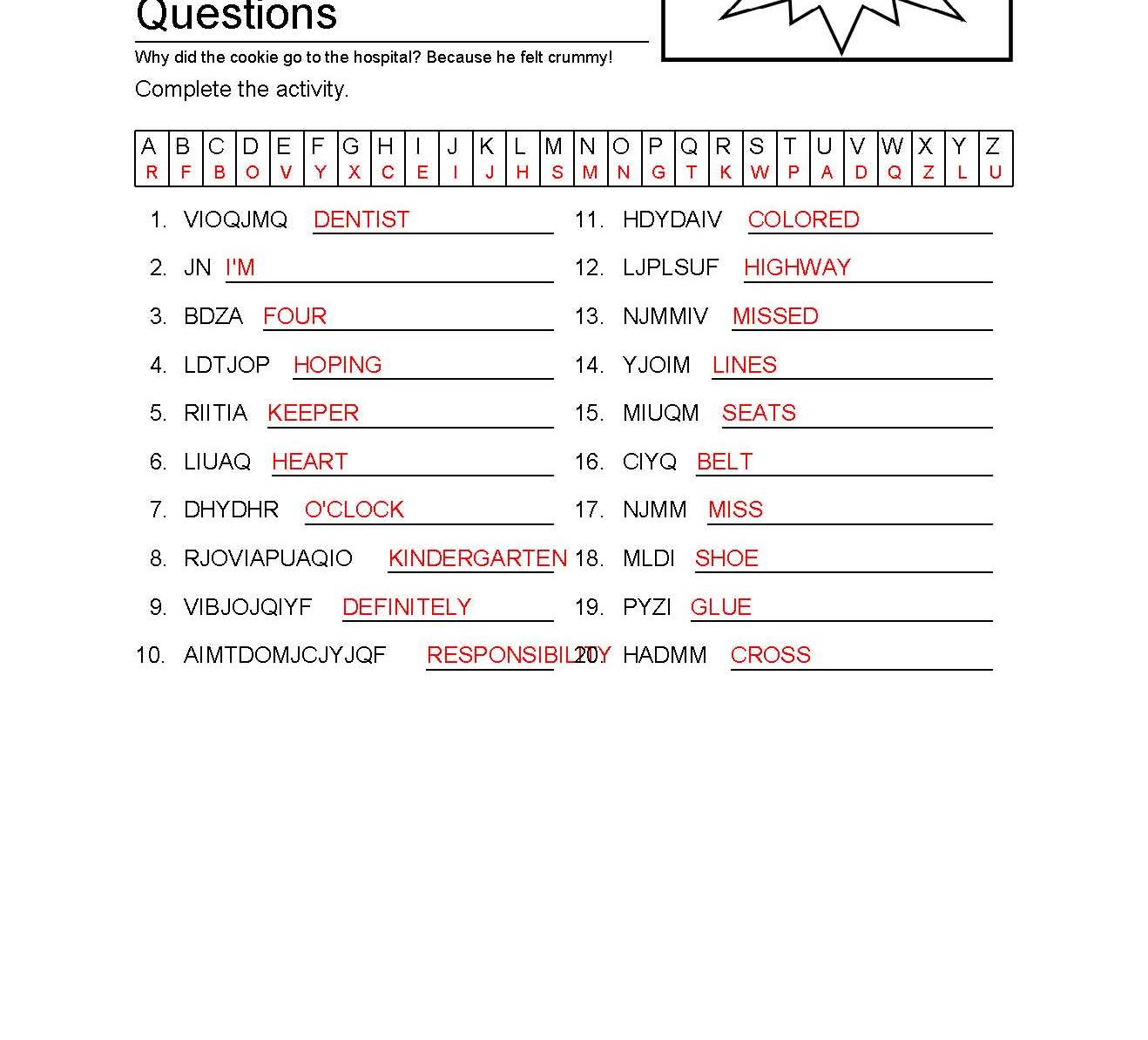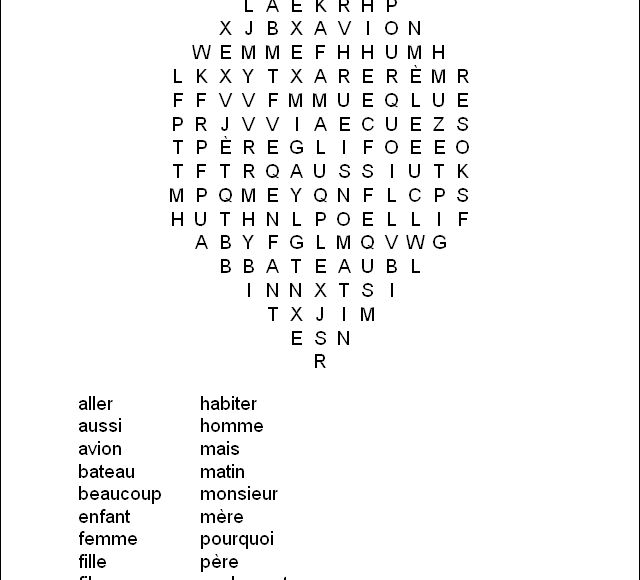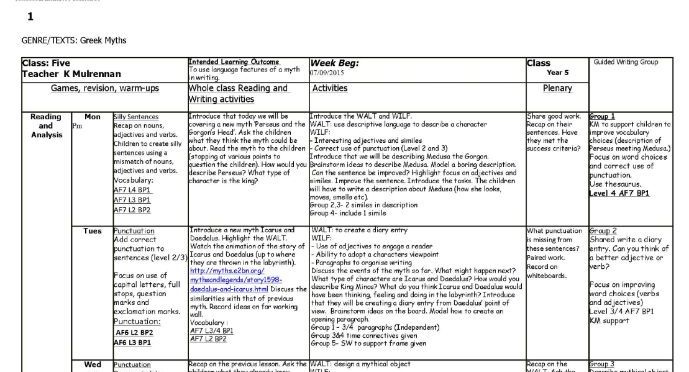407Uploads
123k+Views
41k+Downloads
World languages

Freebie 2 French Wordsearches KS1 KS2 Perfect for Friday Afternoons With Answers
2 French wordseaches with answers.
Each one has 20 basic words to find.
Perfect for rainy Friday afternoons, homeworks etc.
If you like these, please visit my shop where you can purchase 500 of these at a very reasonable price.

Euro Coins Worksheets KS1 KS2 Mathematics Freebie
A worksheet that pupils have to fill in. They have to add up the coins.
If you like it, please visit my shop that has an enhanced similar product.
Bundle Sale

11+ Grammar School Prep Worksheets Bundle Maths Puzzles Synonymn Literacy
Great value bundle.
Great preparation for the grammar school exams.
Ideal for parents or tutors.
All answers provided.
You’ll never run out of material with this great bundle!
Included:
11+ Grammar School Antonym Questions Literacy Worksheets
11+ Grammar School Synonym Questions Literacy 100 Worksheets with Answers
11+ Verbal Reasoning Decoding Vol 1 Maths KS2
11+ Verbal Reasoning Decoding Vol 2 Maths KS2
11+ Verbal Reasoning Questions Letter Patterns Vol 1
11+ Verbal Reasoning Questions Letter Patterns Vol 2
Bundle Sale

Bundle Coins Worksheets UK Euro Shopping
A good value bundle.
Fill in the worksheets on counting Euro coins, UK coins and a series of shopping questions that test knowledge of money etc.
Bundle Sale

Bundle Coins UK and European Plus Maths Adding Up etc
A great value bundle.
Worksheets on adding up UK coins.
Plus Euro ones.
Plus some general maths stuff.
Teaching Resources 100 worksheets Coins KS1 Teachers Counting KS1 KS2
Euro Coins European Worksheets 500 Questions with answers Counting KS1 KS2
1000 questions Mathematics KS2 Multiple Addends 2 Digit Numbers
11+ Verbal Reasoning Questions Letter Patterns Vol 1
Sale

500 French Wordsearch KS1 KS2 Friday Afternoon Treat Homework France Wordsearch
A zip file containing 500 French wordsearches I’ve designed.
All answers provided.
10 sets of simple words. 50 different shapes.
A big file so please be patient when downloading.
Ideal for Friday afternoons, homeworks, fun etc.
Each worksheet has 20 French words to find.
Sale

Year 5 Literacy Planning Autumn Term KS2 Greek Myths Big Write
This is a zip file containing Literacy planning for a year 5 class (Autumn term)
It consists of 14 short term plans I designed. There is one Literacy lesson per day.
You will get 14 Microsoft Word documents. They are based on the Greek myths.
I’ve also included for free some extra teaching materials that you can use. I’ve included too 3 medium term plans , one for each term). These cover plans and ideas not just for Literacy, but other subjects as well.
I’ve also included an extra week from the next term. Feel free to use it to plug any gaps.
This will help you do your own planning. Feel free to cut and paste into your own school’s plans.
Ideal for someone who had to do a term’s supply like I had to do.
Please bear in mind:
every school is different. My plans assume you have the aide of a TA, but this is not essential. There is no differentiation in the planning. Everyone does the same thing to the best of their ability.
you may want to add your own detail. These are short term plans remember.
I have used walts and wilts. Your school may do something different.
A very few number of weeks have a small gaps for things like tests and inset days. Use the extra week one planning for the next term (included for free) if you wish.
Bundle Sale

Bundle Year 5 Literacy Planning Autumn Term KS2 Greek Myths & Times Tables Sheets
A great bundle for year 5.
This is a zip file containing Literacy planning for a year 5 class (Autumn term).
Plus some great sheets on testing Times Tables.
Pupils have to fill in the gaps in various grids I have designed. All answers provided.
It consists of 14 short term plans I designed. There is one Literacy lesson per day.
You will get 14 Microsoft Word documents. They are based on the Greek myths.
I’ve also included for free some extra teaching materials that you can use. I’ve included too 3 medium term plans , one for each term). These cover plans and ideas not just for Literacy, but other subjects as well.
I’ve also included an extra week from the next term. Feel free to use it to plug any gaps.
This will help you do your own planning. Feel free to cut and paste into your own school’s plans.
Ideal for someone who had to do a term’s supply like I had to do.
Please bear in mind:
every school is different. My plans assume you have the aide of a TA, but this is not essential. There is no differentiation in the planning. Everyone does the same thing to the best of their ability.
you may want to add your own detail. These are short term plans remember.
I have used walts and wilts. Your school may do something different.
A very few number of weeks have a small gaps for things like tests and inset days. Use the extra week one planning for the next term (included for free) if you wish.
Sale

108 Cloze Exercises Aesop's Fables KS1 KS2 Literacy Greek Roman Myths Aesop
108 cloze exercises on Aesop’s Fables.
Great for Literacy lessons. Gives lower ability pupils confidence.
The Cloze worksheet is a standard exercise for improving students’ understanding of word context.
The student then fills in the words on the worksheet based on an understanding of the sentence and the list of potential words removed from the text.
The cloze procedure is a reading comprehension activity in which words are omitted from a passage and students are required to fill in the blanks. This procedure is incredibly useful in reading instruction because it can be easily done by any teacher and provides valuable reading comprehension information.
Bundle Sale

Bundle Math Literacy Year 5 Planning Algebra Aesop Cloze Test
A great bundle.
Please check my shop for individual details.
Bundle Sale

Classics Bundle Roman Numerals Latin Wordsearches Aesop Fables Cloze Tests
Classics bundle
100 worksheets on Roman Numerals
500 Latin Wordsearches
108 Cloze tests on Aesops Fables.
See shop for full details.
Sale

Spring Term Literacy Planning Year 5 s1 KS2
Great planning for year 5 for the Spring Term.
Jam packed with plans, ideas, powerpoints etc.
You get 200 mb of material, so great value. e.g. Persuasive writing, recounts, stories from other cultures, descriptive writing, model writing
Plus you get some year 5 Autumn planning I did in one school I taught in.
Sale

European Day Of Languages Powerpoints France Spain Italy
For the European day of languages, but can be used anytime.
Useful info on France, Spain, Italy, Greece, Germany, Sweden and Wales.
Brilliant for assemblies.
Great value as there is a lot of stuff.
Sale

Ash Wednesday Lent Teaching Resources Planning Powerpoints Worksheets Religion
I taught in Catholic schools for years.
Now happily retired, I have assembled all my planning for Lent.
Packed full of stuff. Powerpoints, planning, worksheets, masses etc etc.
This will really make your life easy.
Over 300 mb of stuff. Nearly 500 files.
Sample planning :
PRAYER Start with prayer, light candle, music – look at and reflect on the temptations of Jesus.
INTRODUCTION
Read the text of the temptations of Jesus. Why was Jesus in the desert in the first place? What had just happened to him before this episode in his life?
Recall the three things the devil asked Jesus to do.
What was Jesus’ response on each occasion?
Why do you think these three things were chosen to tempt Jesus?
Jesus was as human as you and me, in all but sin, and yet at the same time he was Gods’ Son.
Do you really think it was difficult for him to say no to the devil? Why do you think it might have been difficult?
Look at the text again. Are there any indicators, which show that this was easy?
MAIN ACTIVITY
Imagine you are Jesus. Write a diary entry about the temptations and how it affected you.
LA to use writing frame
MA to work with partners and write a diary entry about the temptations and how it affected them.
HA to work independently and write a diary entry about the temptations and how it affected them. They will need to also discuss the different responses given by Christ.
Assistant to support LA group. TA n/a
PLENARY AND PRAYER
Reflect on the temptations of Jesus in the desert.
End with prayer – reflect on Jesus’ response to the devil.
PRAYER Start with prayer, light candle, music – look at and reflect on
the temptations of Jesus.
INTRODUCTION
Using the following:
read the text of the temptations of Jesus.
In groups, children to brainstorm the word “temptation” and create a mind map of associated words. What is it like when you are tempted to do something you shouldn’t?
How can we tell the difference between doing something that is right or wrong?
How can we resist the things that are wrong?
MAIN ACTIVITY
Children to write of a time when they resisted temptation or when somebody gave into temptation. Explore the consequences of the different actions.
LA to use writing frame
MA to work with partners and write of a time when they resisted temptation
HA to work independently and write of a time when they resisted temptation and when they gave into temptation. They will need to explore the consequences of the different actions.
Mr Mayor to support LA group
TA n/a
PLENARY AND PRAYER
Reflect on the difference between doing something that is right and something wrong.
End with prayer – reflect on how we can resist the things that are wrong.
Sale

Shakespeare Week Lesson Plan For Year 6 Literacy Drama
Suitable for year 6.
Worked very well for me.
For instance the first day :
Grammar Starter
L.O: Know one of Shakespeare’s stories.
Success Criteria
Know some background information about William Shakespeare, his time and his work.
Describe the basic plotline of ‘A Midsummer Night’s Dream’
Start to talk about the main characters; their hopes, desires and challenges.
Main teaching:
Who was William Shakespeare?
Use above website to read about his background – note that he wrote plays – his works were intended to be acted.
Use the above website to look at the list of plays – discuss terms tragedy, comedy and historical play.
Read ‘A Midsummer Night’s Dream’ shortened, story version. Explain that this was written in 1595.
Sale

English year 5 and 6 The Mysteries of Harris Burdick Planning and Powerpoints Literacy year 5
A great collection for teaching this interesting topic.
You get powerpoints and planning.
Sample :
Punctuate sentences accurately, including using speech marks and apostrophes.
Use commas to mark clauses.
Group and classify words according to their type and meaning.
Read a variety of texts, commenting on the author’s choice of vocabulary.
Construct sentences which are punctuated correctly; including the use of commas, speech marks and apostrophes.
Use a range of connectives to join sentences.
Experiment with complex sentences.
Whole Class Shared Learning
Discuss pronouns (homework)
Define each type of word: Noun, adjective, verb and adverb. Build up a sentence as we go.
Show the children a picture on the whiteboard of a horse galloping and of a lightning bolt. Children to write down 3 (LA) or 5(MA and HA) important nouns from the picture. Share. On the left of the noun, children to write an adjective to modify or describe the noun. Share. After the noun, children to write a verb and then an adverb to qualify the verb.
e.g. The black horse galloped elegantly along the beach.
Praise the children on yesterday’s literacy work – they showed knowledge of the function of nouns, adjectives, verbs and adverbs (HA showed knowledge of the difference between common, proper and pro nouns).
Children to name a range of punctuation – I record on the board (I do not add to it at this point).
Ask volunteers to illustrate uses of the punctuation named. Look on the punctuation pyramid – have we named any L5 punctuation? This is what we should be aiming at all the time.
Children to have a variety of sentences to up level punctuation on their whiteboards.
Come back to ‘The Mysteries of Harris Burdick’. Read through all of the captions and talk about ‘reading’ the illustration. Allow children time to talk about the ‘mystery’ – what do they think happened to Harris Burdick?
Choose a picture from ‘The Mysteries…’ and list all of the questions which it provokes. What do children think of the pictures? Do the captions answer any of the questions?
Talk about the settings in the pictures – often they are recognisable, familiar settings where things are not as they seem. Explain that we would call this ‘Stories in a familiar setting’.
Model the task.
Use PPT to study speech punctuation.
Use the pictures from ‘The Mysteries…’ to write some possible dialogue.
Model possible conversations, including synonyms for said and adverbs plus adverbial clauses. With correct punctuation.
Look at some of the pictures from ‘The Mysteries …’
Think / discuss some of the characters in the pictures. Use adjectives to describe them – give them names. From the pictures come up with verbs to describe what they are doing then add adverbs and adverbial clauses.
Sale

Back To School French Primary School Resources and Lessons
Have you been volunteered (know what I mean?) to deliver Modern Languages at your Primary School?
This bunch of resources, that I used in my decades of French teaching, will help.
I’ve put them into groups to help you.
the zip file has loads. I’ve put a selection as downloads so you can have a look at them.
Highlights include:
festivals
games and activities
how to
ideas for lessons
phonics
poems
loads of powerpoints
songs
stories
Sale

Easter Lessons Through Literature Planning Powerpoints Worksheets Road To Emmaeus
Materials for teaching Easter and Jesus and his disciples.
Planning powerpoints etc.
Road to Emmaeus board game.
Sale

Year 5 Poetry Planning Poetic Style – Valerie Bloom/Pie Corbett
Nice planning :
sample :
Read 3/4 Pie Corbett poems (see list below this plan or plan resources) – NOT Wings. Discuss the poems read eg which one did you like best and why? Is anything similar about the poems? Focus their attention onto things that are typical of Pie Corbett. Use 3 headings: Subject matter/Style of poem/Language. Discuss each of these (subject matter is what the poem is about eg nature, travelling, observations etc). Style is free verse or strict rhythm/regular or irregular rhyming patterns, use of speech or dialogue etc. Language refers to the vocabulary – the use of adjectives and descriptions, metaphors or similes eg ”I heard the paving slabs groan as they muscled for space.” (See plan resources.) Start looking at poems of Pie Corbett under these 3 headings. Give chn time to talk in pairs/small groups about each heading and take feedback. Ask chn to come up and scribe some ideas under each heading. Explain that we will now be exploring some of these headings in more detail. Easy
Give chn a selection of Pie Corbett poems. Model reading a couple to the chn. Discuss what was similar or different in terms of the subject matter. Chn to then read some more poems in pairs and start to sort them into groups that are similar and why. Stick the similar poems onto A3 paper and make rough jottings about why they are similar. TD Medium/Hard
Work in pairs or 3s. Take turns to pick a Pie Corbett poem and read it out loud to rest of group. Repeat this until lots of poems have been read. Provide highlighting pens & poetry checklist (plan resources) to guide their discussion. Ask chn to go back over each poem carefully & highlight any language that makes the poem interesting eg adjectives & descriptions. Give chn the metaphor & simile example sheet (plan resources) to refer to and see if they can highlight any of these in another colour. Make sure chn annotate their highlighting with their own comments. Is there anything linking these Pie Corbett poems together? Does he repeat any language techniques? Finally they look at the style of the poems. Is there a regular rhythm in the poems? Do they use speech?
Sale

Morning Work Sentence Uplevelling Work Literacy Year 5 Pie Corbett
Some easy worksheets to get pupils uplevelling.
Good exercise to have on the desk when they arrive in class.
Plus some nice VCOP and Pie Corbett stuff.
Improving Sentences Checklist:
improve the verb
add an adjective (WOW word)
extend with a connective
start with an ly, ed or ing word
include a simile or a metaphor
add an adverbial
Sentence up Levelling
There was a volcano There were sparks flying
Molten lava streamed down the sides




















